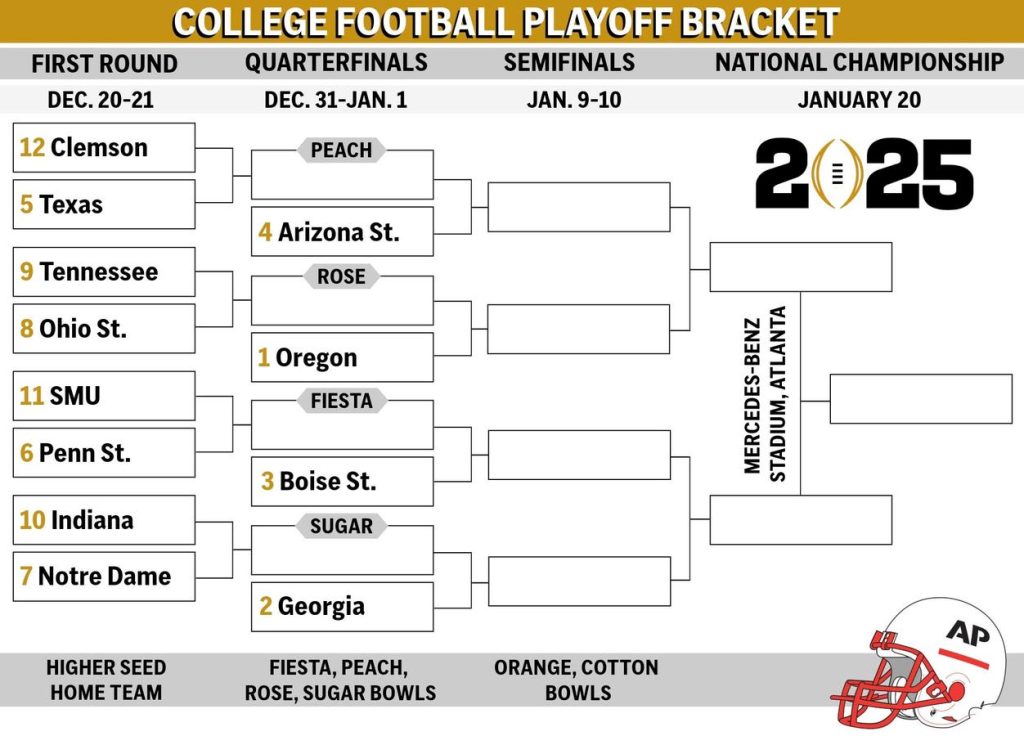The College Football Playoff Expansion: A Gamble on Growth and a Lesson in Adaptability
The roar of the crowd, the thrill of the game, the agony of defeat, and the ecstasy of victory – these are the elements that define the captivating spectacle of college football. Yet, every year, as the confetti settles and a champion is crowned, a chorus of dissent arises, questioning the fairness and inclusivity of the College Football Playoff (CFP) system. In response to these perennial complaints, the NCAA has embarked on a significant overhaul, expanding the playoff from four to twelve teams, a move aimed at quenching the thirst for a more comprehensive and representative postseason. This expansion, while promising a richer, more engaging experience for fans, has also sparked a wave of mixed reactions, raising concerns about the long-term impact on the sport and offering valuable lessons for businesses navigating the complexities of growth.
The most immediate and tangible consequence of the CFP expansion is the projected surge in revenue. With more teams vying for the championship, the number of games increases, leading to a corresponding rise in ticket sales, lucrative broadcasting rights deals, and a boom in merchandise sales. This influx of capital holds the potential to bolster athletic programs and enhance the overall college football experience. However, the allure of financial gain must be tempered with caution. Critics argue that an extended season places an undue burden on student-athletes, increasing the risk of injuries and burnout. Moreover, the increased time and financial commitment required from fans to follow their teams through an extended playoff run could diminish the excitement and exclusivity that once characterized the postseason. The delicate balance between maximizing revenue and preserving the integrity of the sport will be a critical challenge for the NCAA moving forward.
The early success of ticket sales for the opening weekend of the expanded playoffs suggests a significant level of fan enthusiasm and anticipation. While skepticism regarding the new format persists, the NCAA’s willingness to embrace change offers a valuable lesson for small businesses. In an ever-evolving marketplace, adaptability is paramount. The ability to recognize shifting trends and adjust strategies accordingly is essential for survival and growth. The CFP expansion exemplifies this principle, demonstrating a commitment to staying relevant and engaging with a broader audience. Just as the NCAA is experimenting with a new playoff structure, small businesses must constantly explore innovative ways to connect with their target markets, whether it’s through embracing new technologies, diversifying product offerings, or exploring emerging platforms.
One such platform gaining traction is live-stream shopping on social media, a trend projected to reach $1.2 trillion globally by 2025. Platforms like Whatnot, specifically designed for live selling, have already witnessed remarkable success, generating billions in revenue. This example underscores the importance of staying ahead of the curve and capitalizing on emerging opportunities. For small businesses, this means embracing experimentation, being open to new approaches, and constantly seeking innovative ways to engage customers and drive growth. The college football landscape provides a real-time case study in adapting to change, a lesson that businesses of all sizes can learn from.
While the expansion holds the promise of greater inclusivity and excitement, it also carries the risk of diluting the significance of the regular season and devaluing the non-CFP bowl games. The previous format, with its emphasis on regular season performance and the exclusivity of bowl season, created a heightened sense of anticipation and generated significant revenue for host cities and businesses. The expanded playoff could potentially oversaturate the postseason, diminishing the prestige and economic impact of the traditional bowl system. This is a cautionary tale for businesses contemplating rapid expansion. Growth, while desirable, must be managed strategically. Scaling too quickly without adequate planning and investment in infrastructure can lead to operational inefficiencies, strained resources, and missed opportunities.
The NCAA’s bold move to expand the College Football Playoff serves as a microcosm of the challenges and opportunities inherent in pursuing growth. The potential for increased revenue and broader engagement is undeniable. However, the long-term success of the expanded format hinges on the NCAA’s ability to mitigate the risks associated with a longer season, address concerns about player welfare, and maintain the integrity and excitement of the sport. As the season unfolds, stakeholders will closely monitor the execution and reception of the new playoff structure, anticipating further adjustments and refinements. For fans, the expanded playoff promises a more thrilling and inclusive postseason. For businesses, it offers a valuable lesson in the complexities of growth, emphasizing the importance of adaptability, strategic planning, and a willingness to embrace change in a dynamic marketplace. The college football field has become a testing ground for innovation, and the lessons learned will resonate far beyond the stadium lights.












